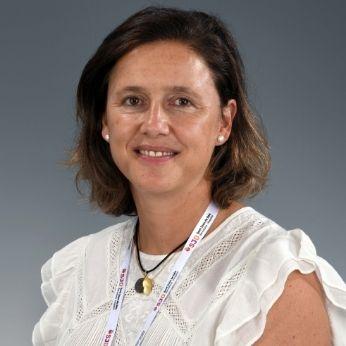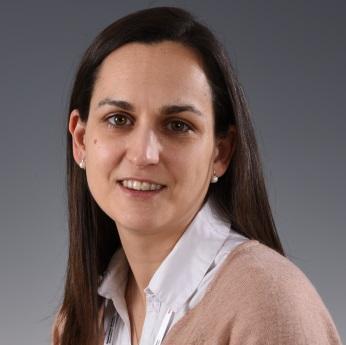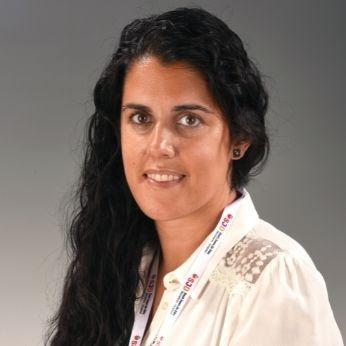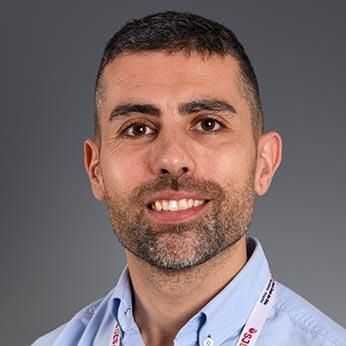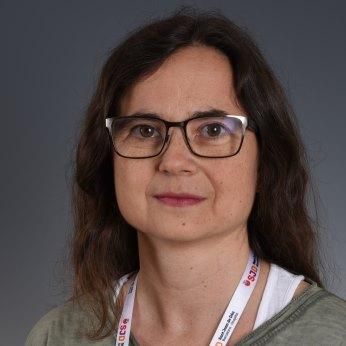
Allergy and Clinical Immunology We diagnose and treat all types of allergies and primary and secondary immunodeficiencies. We offer comprehensive care to children and their families
In the Allergy and Clinical Immunology Department and the Clinical Immunology and Primary Immunodeficiency Unit, we treat children from 0 to 18 years of age with all types of allergies and immunodeficiencies.
Accreditations
- We have the European ERN RITA accreditation on primary immunodeficiencies and autoimmune diseases.
- CSUR of the Ministry of Health for the treatment of primary immunodeficiencies.
- Network of expert clinical units (XUEC, in its acronym in Catalan) in primary immunodeficiencies by the Catalan Health Service.
- GA2LEN Anaphylaxis Centre of Reference and Excellence.
- Federation of Clinical Immunology Societies (FOCIS) Centre of Excellence.
Why SJD Barcelona Children's Hospital?
In 2023, we carried out 11,800 visits; more than 47 visits per day.
Wide experience
In 2023, we carried out 11,800 visits; more than 47 visits per day.
- We are a center of excellence in food allergies. We treat more than 100 children with oral immunotherapy every year. Our cure rates, after this treatment, exceed 70%.
- We consider health education to be fundamental, in both food and respiratory allergies, to prevent Emergency Department admissions.
- We offer multidisciplinary management of eosinophilic oesophagitis.
- We are a center accredited by the European Union of Medical Specialties (UEMS) to offer pediatricians training in Allergies and Clinical Immunology.
We have one of the few specialised units in Paediatric Clinical Immunology in Spain.
Benchmarks in Clinical Immunology and primary immunodeficiencies
We have one of the few specialised units in Paediatric Clinical Immunology in Spain.
- We are a reference center for the treatment of primary immunodeficiencies and autoimmune diseases in the European Union, Members of the European Network of (ERN RITA).We are also a a reference center in Spain, accredited by the Ministry of Health (CSUR) and one of the two reference centers in Catalonia in the care of pediatric patients affected by this group of rare diseases, forming the network of units of clinical expertise (XUEC) in primary immunodeficiencies. We monitor patients with primary immunodeficiencies from Catalonia and the rest of Spain, as well as international patients.
- We have extensive experience and diagnostic capacity thanks to the highly complex laboratory of the Hospital Clínic, and the specialist care offered to patients suffering from immunodeficiencies.
- The Clinical Trial Unit allows access to treatments for rare diseases. The knowledge amassed over the last decade enables us to offer optimised treatments and respond with increasing accuracy to each clinical condition.
- We are recognised by the European Society for Immunodeficiencies (ESID) to be able to deliver teaching in the field of primary immunodeficiencies.
We offer a multidisciplinary approach adapting treatment to the needs of patients and their families
Personalized and comprehensive care for patients and families
We offer a multidisciplinary approach adapting treatment to the needs of patients and their families
- The Unit works with highly specialised diagnostic and therapeutic techniques. Through the cellular therapies platform, we offer pioneering immunotherapy-based treatments for patients with very diverse immune-mediated diseases (immunodeficiencies, both neurological and autoimmune, among others); as well as oncological and infectious diseases.
- We work with a case management nurse who coordinates and monitors patients who, particularly in primary immunodeficiencies, are often chronic and are under multidisciplinary management, owing to which they require resources and coordination between different primary and secondary healthcare professionals, schools and psychosocial care.
- Our paediatric hospital, together with the Hospital Clínic as a centre for adults, has promoted the SJD-Hospital Clínic Clinical Immunology Unit, established in 2011 and currently being strengthened. Thanks to this agreement, we can also offer a programme for transition to adult life.
- We collaborate with the “Associació Catalana de Dèficits Immunitaris Primaris” (ACADIP), the Catalan Association for Primary Immunodeficiencies, of which Dr Laia Alsina is a medical advisor.
Our Outcomes
first annual visits related to allergology.
first annual visits related to immunology.
of patients cared for allergy come from other centres.
of the patients cared for by immunology come from other centres.
annual outpatient visits for allergy patients.
annual outpatient visits for immunodeficient patients.
2023 data
Specialities and services
Pathologies we treat
Clinical Immunology and Primary Immunodeficiencies Team
"We treat allergic diseases and immunodeficiencies to get patients back to a normal life"
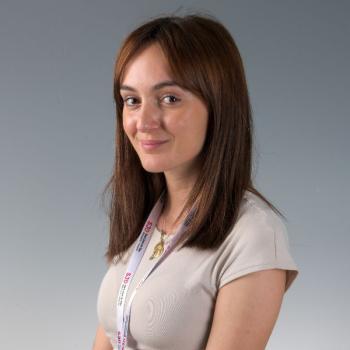
Allergy team
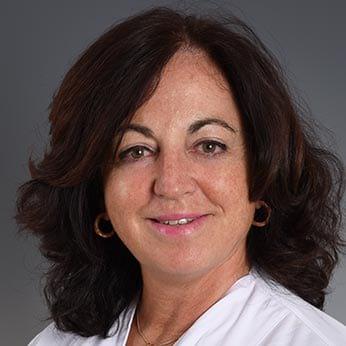
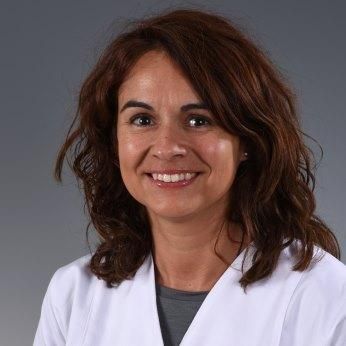
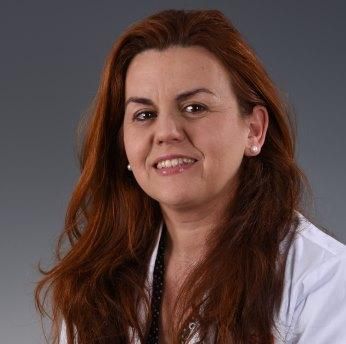
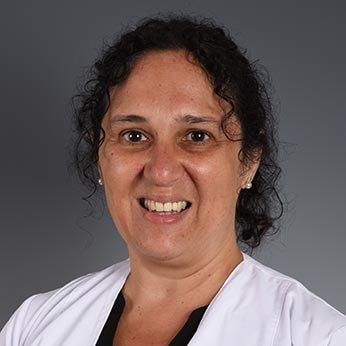
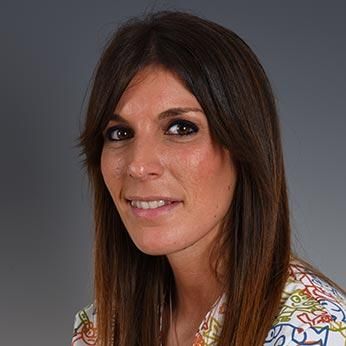

Research
In the last 5 years, the Allergy and Clinical Immunology Department of the SJD Barcelona Children’s Hospital has participated in numerous studies and research projects.
Global research projects
- Clinical trials: more than 10 conducted.
- Publications: more than 30 publications in journals with impact factor.
All members of the team participate actively in different scientific societies, such as Sociedad Española de Inmunología Clínica, Alergología y Asma Pediátrica (Spanish Society of Paediatric Clinical Immunology, Allergology and Asthma - SEICAP), the EAACI (European Academy of Allergy and Clinical Immunology), of which Dr Montserrat Alvaro is the secretary of the Paediatric Board, and the ESID (European Society for Immunodeficiencies), of which Dr Laia Alsina participates in PID Care in Development (primary immunodeficiencies).
Research of the Clinical Immunology and Primary Immunodeficiencies Unit
The research group, led by Laia Alsina, within the Institut de Recerca Sant Joan de Déu (SJD Research Institute), focuses on primary/congenital immunodeficiencies and secondary immunodeficiencies, with the following main lines:
- Primary immunodeficiencies of the Toll-IL-1 R pathway (susceptibility to pneumococcus and herpes encephalitis), and of the IL-12/IFN-γ pathway, which generate susceptibility to intracellular infections (mycobacteria, leishmaniasis, among others).
- Primary immunodeficiencies with a predominant component of immune dysregulation (inflammation, lymphoproliferation, autoimmunity), such as common variable immune deficiency, with particular interest in the study of cells with a regulatory role (regulatory T and B cells) and the use of sirolimus in their treatment.
- Immunodeficiencies secondary to the use of monoclonal antibodies, especially anti-TNF-a during pregnancy and B-cell depletion therapies.
The objective is to ascertain the bases of the immune dysfunction in the 3 different pathology groups, to identify biomarkers as well as new therapeutic targets.
The research group led by Laia Alsina belongs to the group pre-consolidated by the AGAUR (Agència de Gestió d'Ajuts Universitaris i de Recerca, Agency for Management of University and Research Grants) (GPRE 2017/SGR1547), called GEMDIP (Grup d’Estudi en Malalties per Disregulació Immune a Pediatria - Study Group on Immune Dysregulation Disorders in Paediatrics).
The different lines of research have been financed through competitive FIS (Health Research Fund) grants (2012, 2015, 2018); Eranet (2016); SEICAP Scholarship Award (2017); Leonardo Scholarships for Researchers and Cultural Creators from the BBVA Foundation (2018) and PERIS (Strategic Plan for Research and Innovation in Health) (2018).
Specific areas and recent publications by the group:
Primary immunodeficiencies
Innate immunity: Toll-IL-1R pathway (MyD88/IRAK4 and TLR3 deficiencies, with susceptibility to pneumococcus and encephalitis due to herpes virus, respectively) and IL-12/IFN-gamma pathway (susceptibility to mycobacteria and other intracellular bacteria).
- Nat Immunol. 2014; 15(12):1134-42.
- Crit Rev Clin Lab Sci. 2018; 55(3):184-204.
- J Clin Immunol. 2018 Jul 23
- Lancet Neurol. 2018; 17(9):760-772.
Immune dysregulation: common variable immune deficiency, regulatory B-cells and use of sirolimus/rapamycin in primary immunodeficiencies.
- Front Immunol. 2017; 8:201.
- Int J Mol Sci. 2018 Jul 19;19(7).
- Front Immunol. 2018; 9:636.
- J Allergy Clin Immunol 2018 May 4
- Pediatr Allergy Immunol 2018; 29(4):425-432.
Secondary immunodeficiencies
Treatment with monoclonal anti-TNFa during pregnancy.
- Front Immunol. 2017; 8:1123.
Teaching
SJD Barcelona Children's Hospital is a university hospital affiliated with the Universitat de Barcelona, and so we share our knowledge and train professionals to specialise in high-complexity medicine.
The Division of Allergy and Clinical Immunology at SJD Barcelona Children's Hospital is accredited by the European Academy of Allergy and Clinical Immunology (EAACI) and the European Academy of Paediatrics (EAP) as a teaching unit in pediatric allergies.
We have been accredited by the European Society for Immunodeficiencies (ESID) to teach in the field of primary immunodeficiencies.
Specialist training for resident physicians and medical interns (MIR)
We train specialist paediatricians to work in hospital and non-hospital settings.
Master of Science in Paediatric Immunology and Allergy
Master's degree in the Paediatric Allergy and Clinical Immunology specialty for paediatricians, by the Universitat de Barcelona.
